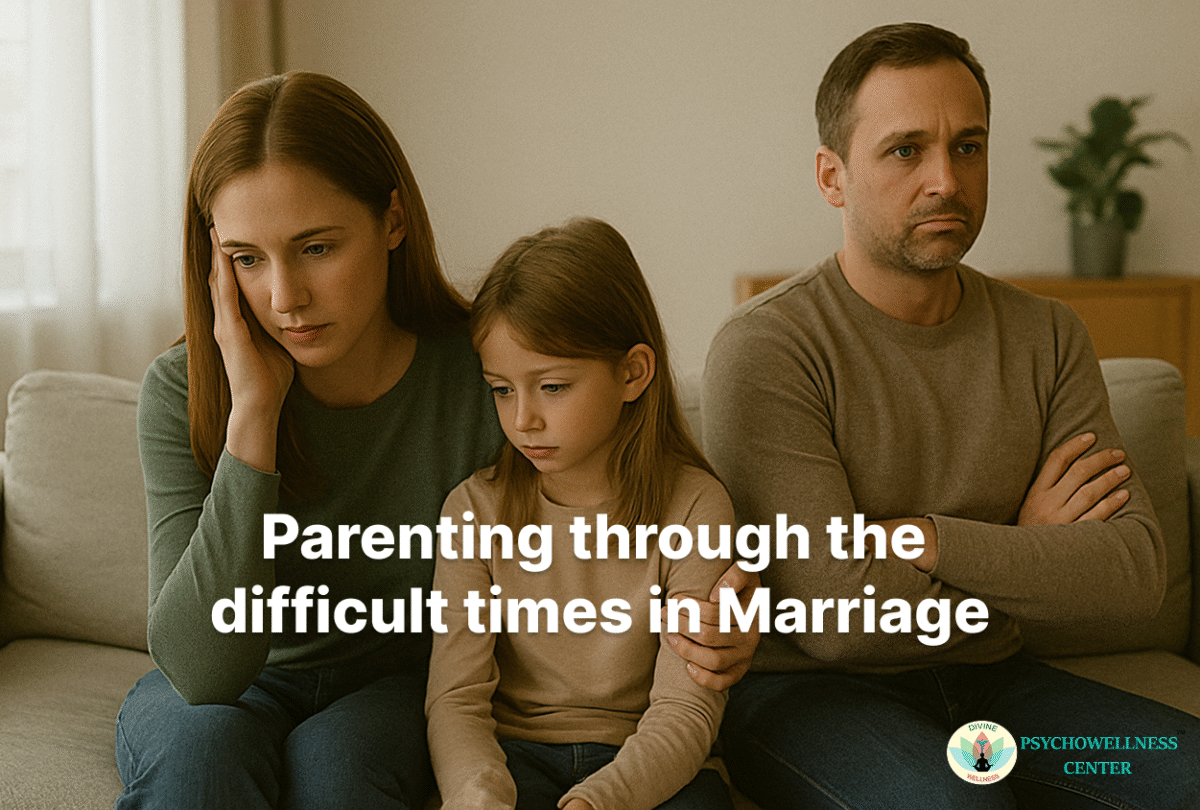Marriage is a journey that has its share of pleasures and difficulties. While the good times bring couples closer, difficult times can test the resilience of any relationship. During these struggles, be it financial hardship, emotional distance, infidelity, or unresolved conflict, parents are still expected to fulfil one of their most important roles: raising emotionally healthy and secure children. Parenting through a troubled marriage is not easy, but with intentionality, support, and mindfulness, it can be done in a way that safeguards the well-being of the children involved.
The Intersection of Marital Conflict and Parenting
When a marriage is going through turbulence, it often spills into other areas of life, especially parenting. Youngsters may sense the emotional atmosphere in their home. Even when parents attempt to shield them from arguments or emotional tension, kids often pick up on non-verbal cues, such as body language, tone of voice, or emotional withdrawal.
Studies have consistently shown that chronic exposure to marital conflict can negatively affect a child’s emotional and behavioural development. According to Cummings and Davies (2010), ongoing conflict between parents can lead to increased stress, anxiety, anger, couple conflicts, and problems with social relationships in children. It is crucial to recognise this impact and commit to mitigating its effects through conscious and cooperative parenting.
Creating a Protective Shield for Your Children
Despite the strain in a marriage, one of the most powerful steps parents can take is to create a “buffer zone” that protects their children from adult conflict. This involves several strategies:
- Keep Conflict Away from Children: Arguing in front of children should be avoided as much as possible. Heated discussions or expressions of contempt can instill fear, confusion, or a sense of responsibility in children. Even when disagreements cannot be avoided, demonstrating respectful communication can model healthy conflict resolution.
- Maintain Routine and Stability: Consistency is comforting to children. In the face of uncertainty, maintaining routines, mealtimes, bedtime customs, and school support helps to maintain a sense of normalcy. It sends a message that, regardless of parental conflict, their world remains predictable and safe.
- Unified Parenting Front: When parents disagree on parenting approaches during a difficult phase in marriage, it can lead to inconsistency and confusion for the children. Presenting a united front, at least on major parenting decisions, offers children a sense of stability and structure (Feinberg, 2003).
Managing Emotional Spillover
During challenging times in a marriage, it’s easy for emotions like anger, resentment, or sadness to spill over into parenting. This may show itself as overcompensation, emotional distance, or irritation. To avoid this, emotional regulation is key. Self-care is not a luxury; it’s a necessity. Parents must take time to process their emotions through journaling, therapy, spiritual practices, or talking to trusted friends. Emotional regulation allows parents to remain calm, responsive, and emotionally available to their children, even when their own life feels uncertain. Moreover, acknowledging mistakes is powerful. If emotions do boil over in the presence of children, offering a genuine apology teaches them humility, accountability, and emotional honesty.
Seeking Support: Therapy, Counselling, and Community
Professional support can be transformative. Couples therapy or individual counselling can provide tools to navigate marital conflict while protecting the parent-child bond. According to Gottman and Silver (2015), emotionally focused therapy helps couples understand underlying issues rather than just surface-level conflicts, leading to more constructive interactions both as partners and as parents.
Support groups for parents or marital challenges can also offer a sense of solidarity and practical advice. Community, whether it’s through friendship, religious groups, or parenting networks, provides an emotional buffer and helps prevent isolation, which often worsens stress levels.
Honest but Age-Appropriate Communication
Children often know more than parents assume. It’s important to talk to them about what’s going on, without oversharing or putting them in the middle. Assure them that both parents love them without conditions, that the argument is not their fault, and that it’s acceptable to feel angry or confused.
Be attentive to their emotional responses and offer space for questions. Let them know it’s okay to express how they feel, even if those feelings are uncomfortable. This nurtures emotional intelligence and trust.
When Separation or Divorce Becomes Inevitable
Not all marriages survive difficult times, and in some cases, ending the relationship might be the healthiest choice for everyone involved. The way parents handle separation can either lessen or amplify its impact on the children. Co-parenting with respect, maintaining open lines of communication, and keeping the child’s needs at the center of every decision are critical.
According to Amato (2000), the long-term effects of divorce on children are largely shaped not by the divorce itself, but by the degree of ongoing parental conflict and the quality of the post-divorce parenting relationship.
Conclusion
Parenting during tough times in a marriage requires intention, patience, and a deep sense of responsibility. The goal is not perfection, but mindfulness, ensuring that children feel safe, loved, and secure, even during relational chaos. By prioritizing the emotional needs of the children, seeking support, and working collaboratively when possible, parents can guide their families through difficult seasons with resilience and hope.
Contributed by Ms. Sheetal Chauhan, Counselling Psychologist
References
- Amato, P. R. (2000). The consequences of divorce for adults and children. Journal of Marriage and Family, 62(4), 1269-1287. https://doi.org/10.1111/j.1741-3737.2000.01269.x
- Cummings, E. M., & Davies, P. T. (2010). Marital conflict and children: An emotional security perspective. Guilford Press.
- Feinberg, M. E. (2003). The internal structure and ecological context of coparenting: A framework for research and intervention. Parenting: Science and Practice, 3(2), 95-131. https://doi.org/10.1207/S15327922PAR0302_01
- Gottman, J. M., & Silver, N. (2015). The seven principles for making marriage work: A practical guide from the country’s foremost relationship expert. Harmony Books.

